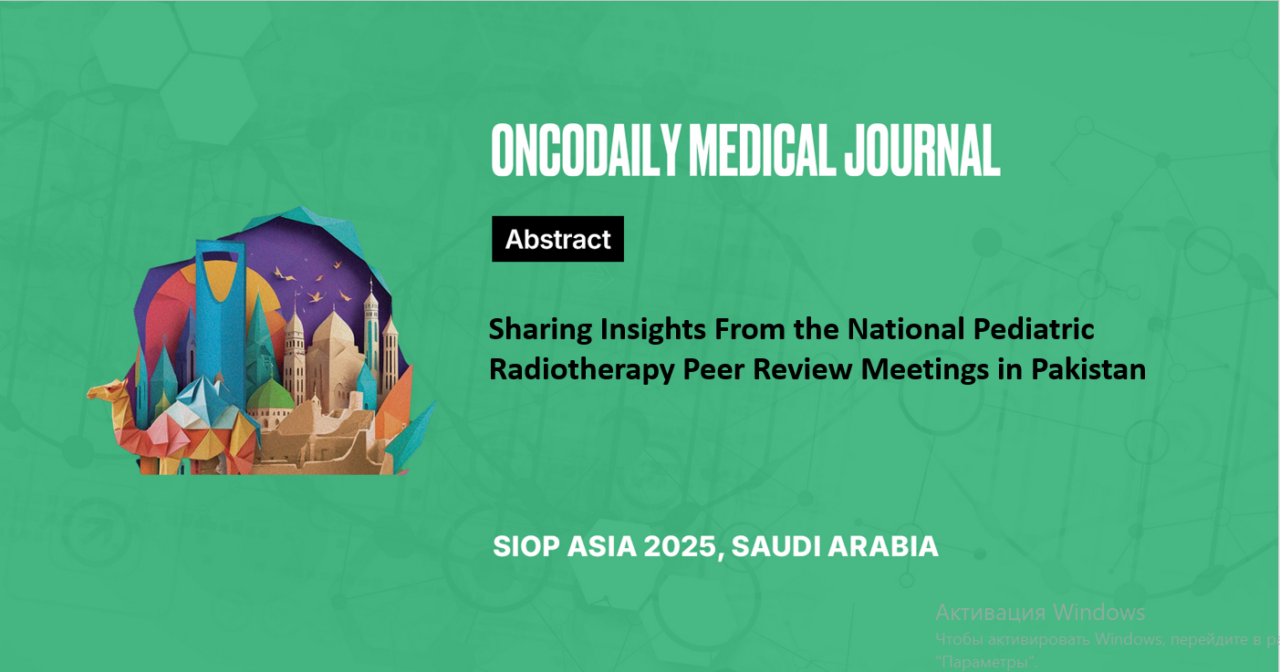Sharing Insights from the National Pediatric Radiotherapy Peer Review Meetings in Pakistan
Abstract
Introduction: Pediatric Radiotherapy Peer Review Meetings in Pakistan were initiated to explore the possibility of bridging gaps in radiation therapy for pediatric cancer patients. These national peer review meetings serve as a platform for case discussions, protocol harmonization, and professional development among pediatric radiation oncology teams. We aim to share insights from these online meetings discussing pediatric radiotherapy plans with participants from different centers.
Methodology: Participants from radiotherapy centers across Pakistan were invited via flyers to virtually discuss pediatric cases for peer review of radiotherapy(RT) plans starting June 2022. Details of the participants (both physicians and trainees), their respective institutes, cases discussed, demographic information, recommendations provided, and treatment protocols discussed for evidence and educational purposes were documented in a password-protected sheet.
Results: Between June 2022 and January 2025, 43 peer-review meetings were conducted. These meetings were attended by a median of 15 participants(range:10–21) from 26 institutes in Pakistan and abroad. Participants included pediatric oncologists(6%), radiation oncologists(28%), and trainees(37%). A total of 123 cases were discussed, with a median of 3 cases per meeting (range:2–5). These included 32 rhabdomyosarcomas, 22 CNS tumors, 19 Renal tumors, 21 Ewing’s sarcomas, 17 Hodgkin’s lymphomas, 5 Non-rhabdomyosarcoma soft tissue sarcomas, and 7 miscellaneous cases.
Most patients were male (44%) with a median age of 6 years (range: 1–18). Detailed discussions occurred for 78 cases (63%), focusing on treatment protocols for risk stratification and staging (5%), RT indications(5%), RT planning recommendations such as dose (15%), target volume delineation (14%), OAR constraints (13%), treatment technique and fractionation (5%), and histopathology and imaging reviews (5%).
Conclusion: The initial experience of this national initiative has the potential to serve as a platform to exchange knowledge, promote evidence-based practices, and foster collaboration among radiation oncology centers. Future efforts will focus on leveraging the data from these meetings to improve service delivery, education, and equipment availability.





